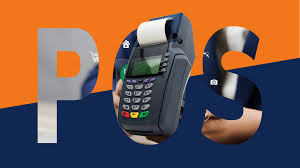The shift to digital transactions is transforming the Nigerian real estate market, making it easier to pay for rent, deposits, and service charges. However, this convenience must be balanced with robust security. The Central Bank of Nigeria (CBN), through its comprehensive Guidelines on Operations of Electronic Payment Channels in Nigeria (2020/2024), has formalized the rules for financial transactions across all digital platforms.
For Nigerian real estate investors, developers, property managers, and tenants, these regulations are not just legal requirements—they are the foundation for secure and efficient property payments.
Here’s a breakdown of the most critical aspects of the CBN’s guidelines and their direct impact on how money moves in the real estate sector.
1. Zero Tolerance for PoS Surcharges on Property Payments
One of the most immediate financial protections for consumers is the ban on hidden fees for using digital payments.
-
The Rule: A merchant (including a property agent or landlord) cannot charge a different price, surcharge a cardholder, or discriminate against any individual who chooses to pay with a card or by other electronic means.
-
Real Estate Impact: This means property companies accepting rent or deposits via a PoS terminal in Nigeria must absorb the transaction costs themselves. Tenants and buyers must not be charged an additional ₦50 or ₦100 fee simply for opting to use their bank card. This promotes the use of transparent and trackable digital rent payment systems.
-
Interoperability: All PoS terminals must now accept all bank cards issued in Nigeria, guaranteeing seamless service regardless of the cardholder's bank.
2. Enhanced Security for Large Property Transactions
High-value transactions are the norm in Nigerian real estate finance. The CBN guidelines mandate stronger security protocols for these large ticket items, mitigating fraud risk.
-
Mandatory KYC & Limits: Payment processors must conduct stringent Know Your Customer (KYC) checks on all merchants (property firms, agents) and set transaction limits based on their business profile.
-
Verification of Identification: Crucially, Merchant Acquirers are required to provide guidelines to merchants on payment procedures for large ticket property transactions, which may involve mandatory review of valid identification (e.g., National ID, Passport). This is a vital anti-fraud measure when receiving a major deposit or full payment for a land purchase via electronic channels.
-
Web Acceptance Security: For property sales using online payment gateways, the guidelines require strict adherence to global security standards like PCI DSS (Payment Card Industry Data Security Standard) to protect sensitive cardholder data.
3. Faster Resolution for Failed Property Payments
Few things are more frustrating than a failed electronic payment, especially when dealing with time-sensitive funds like rent or a closing deposit. The CBN has set aggressive timelines to protect the payer.
| Transaction Type | Resolution/Refund Timeline (Maximum) |
| Failed PoS Transaction | 48 Hours |
| Failed "Not-On-Us" ATM Transaction | 48 Hours |
| Notification of PoS Error by Cardholder | 48 Hours for investigation and resolution |
This 48-hour resolution window provides a strong layer of consumer protection, ensuring that tenants and buyers get their funds back quickly if a Nigerian real estate payment fails due to system errors.
4. Operational Requirements for Property Managers
For any property professional operating a payment channel, compliance is non-negotiable:
-
PoS Terminal Certification: All devices, whether traditional PoS or mobile mPoS, must be certified and comply with EMV (Europay, Mastercard, and Visa) and CBN standards.
-
T+1 Settlement: For efficient cash flow management, all domestic PoS transaction settlements must be completed on a T+1 basis (Transaction Day plus one working day). This ensures prompt access to funds paid by tenants or buyers.
Conclusion: Secure Your Digital Edge in Real Estate
The CBN’s electronic payment guidelines are essential for building trust in the digital handling of large sums common in Nigerian real estate. For property companies, compliance enhances operational efficiency and security. For tenants and buyers, the rules guarantee faster, fairer, and safer property payments.
Staying current with these financial regulations is a crucial step for any player looking to leverage technology to gain a competitive edge in the modern Nigerian property market.
